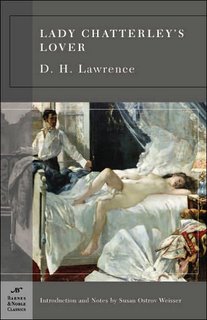
Who knew that such a well-known, highly renowned book such as Lady Chatterley’s Lover could create such havoc? Well, actually while the book is highly renowned now, it was not when it was first written by D.H. Lawrence.
Let’s start, by discussing the censorship of the arts, before the printing press was even invented. In ancient times, such as the times of Socrates and Plato, sexual references within plays and written works were not chastised. Rather, sexual acts were found entertaining as they are today. Instead, religion was the issue to be censored. Anything dealing with blasphemy against the gods or the Christian doctrine was taken very seriously. To the death serious! Even in 18th century England, sex was not the issue to be censored, it was religion and political issues. However, Gutenberg’s printing press was when regulations had to be put into effect.
Unfortunately, before the printing press the upper-class members of society were the ones attending the plays that were censored for religious and political issues. However, once the printing press came into use, all social classes had access to these materials and stricter regulations were put into effect. This is what started the censorship of sexual books, and Lady Chatterley’s Lover.
The most risque copy of Lawrence’s book was not distributed until 1960 by Penguin Publishers. Edited copies had previously been distributed around the world, including the United States. However, when Penguin published this work, scholars were not offended but rather the Post Master General. They refused to deliver the copies of the newly published novel to buyers and bookstores. Their reason: Obscenity. People began to question the American right to freedom of speech. Where is the freedom for Lawrence? Therefore the issue was brought to the Supreme Court.
After almost a month of courtroom banter, it was decided by the Supreme Court that the book was of distinguishable literary merit, and should not be banned. The Post Master simply resided their case on sexual quotes from the book, instead of looking at the book as a whole. It was decided in the court room that without those accused "obscene" parts of the book, the novel would not hold the same meaning or significance. It was not banned, and you can buy a copy off of bookshelves today.
No comments:
Post a Comment